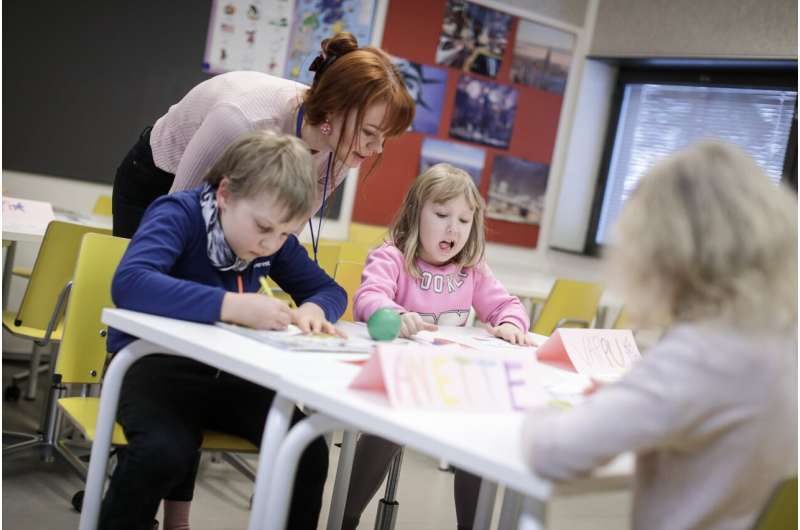cytomel synthroid combination dosage

Reading and mathematical skills form the basis for learning and academic success. According to a recent study conducted at the University of Jyväskylä, Finland, children who exhibit fine motor skills in the first grade are proficient in reading and mathematics by third grade. However, physical activity did not impact the development of these academic skills.
Motor skills refer to the ability to control the body purposefully and provide the foundation for all movement and daily activities. The study results showed that those with finer motor skills in first grade had better academic skills by third grade. However, physical activity did not predict academic skills or motor skills.
Motor skills did not predict physical activity two years later. However, children who were physically more active in the first grade had better motor skills by third grade. Early and diverse movement, such as running, jumping, effexor extended release withdrawal rolling, climbing, and balancing, supports motor skills development. Children’s motor development is a process that demands time and patience, and children develop at different rates. Children should therefore be encouraged to challenge their motor skills at all ages.
“The study helps to understand the complex dynamics between exercise, motor skills, and academic skills and emphasizes the importance of motor skills as a supporter of academic skills,” says Dr. Eero Haapala from the Faculty of Sport and Health Sciences at the University of Jyväskylä. “The results also provide important information that helps to develop new ways to promote children’s health and well-being.”
The study, published in the journal Medicine & Science in Sports & Exercise, examined the relationships between exercise, motor skills, and academic skills in Finnish primary school-aged children. A total of 189 children were followed from first to third grade. Their physical activity was measured using a combined heart rate and movement monitor, their motor skills were measured using an agility shuttle run test, and their academic skills were measured using reading comprehension and mathematical fluency tests.
More information:
Eero A. Haapala et al, Cross-Lagged Associations between Physical Activity, Motor Performance, and Academic Skills in Primary-School Children, Medicine & Science in Sports & Exercise (2023). DOI: 10.1249/MSS.0000000000003163
Journal information:
Medicine & Science in Sports & Exercise
Source: Read Full Article
